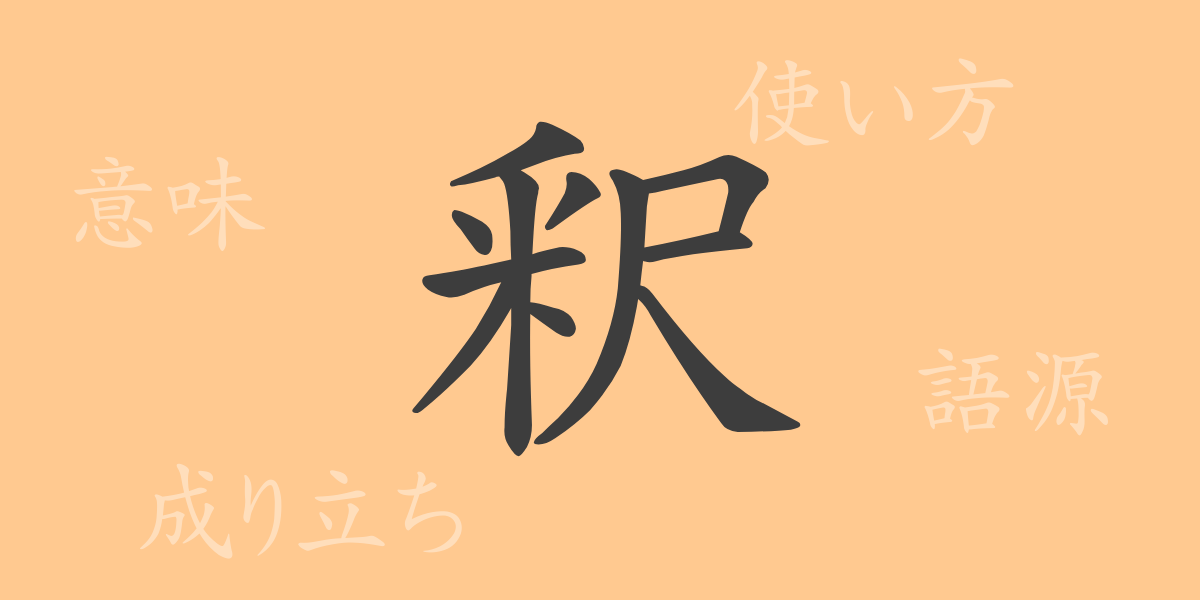The history and meaning of a single kanji character reflect the depth of a nation’s culture and language. The common kanji “釈(しゃく)” used in Japan is no exception. This article delves into the world of “釈(しゃく),” exploring its origins, modern usage, and the idioms and phrases it appears in. How has this kanji, often used in the realms of law and interpretation, integrated into our daily lives? We will provide a comprehensive explanation of its readings, meanings, and usage in various contexts.
Origin of 釈(しゃく) (Etymology)
The kanji “釈(しゃく)” has developed from the ancient Chinese script, Seal Script (篆書 てんしょ). Originally, it was composed of the radical for “hand” (扌 てへん) and “writing” (書 しょ), representing the act of interpreting by carving meanings into wood. Although the character has evolved over time, its fundamental meaning of “interpreting” or “explaining” has remained unchanged.
Meaning and Usage of 釈(しゃく)
The kanji “釈(しゃく)” means “to explain,” “to interpret,” or “to release.” In legal contexts, it is used in the term “釈放(しゃくほう),” meaning “release from custody.” In Buddhist terms, it appears in the name “釈迦(しゃか)” (Shakyamuni), leading to the respectful term “釈尊(しゃくそん).” In everyday conversation, it is often used in “釈明(しゃくめい),” meaning “to explain or clarify a misunderstanding.”
Readings, Stroke Count, and Radical of 釈(しゃく)
The kanji “釈(しゃく)” has several readings and a distinctive structure.
- Readings: The on’yomi (音読み) is “シャク,” and the kun’yomi (訓読み) is “とく.”
- Stroke count: 11 strokes.
- Radical: The radical is 釆(のごめ, hen).
Idioms, Phrases, and Proverbs Using 釈(しゃく)
Idioms and phrases containing “釈(しゃく)” reflect its meanings of “explaining” and “interpreting.” For example, “釈然(しゃくぜん)” means to feel relieved after resolving doubts or concerns, as in “無罪(むざい)を証明(しょうめい)して釈然(しゃくぜん)とした” (feeling relieved after proving innocence). “釈明(しゃくめい)” refers to explaining or clarifying misunderstandings, often used in “釈明会見(しゃくめいかいけん)” (clarification meeting). The proverb “釈迦(しゃか)に説法(せっぽう)” means teaching a knowledgeable person something they already know, implying a redundant action.
Conclusion on 釈(しゃく)
The kanji “釈(しゃく)” symbolizes the depth of the Japanese language, having developed its form and meaning over a long history. It plays a significant role in both specific fields like law and religion, as well as in everyday life, helping to deepen mutual understanding through language. Through this exploration, we hope readers can appreciate the rich world and charm that “釈(しゃく)” embodies.

























